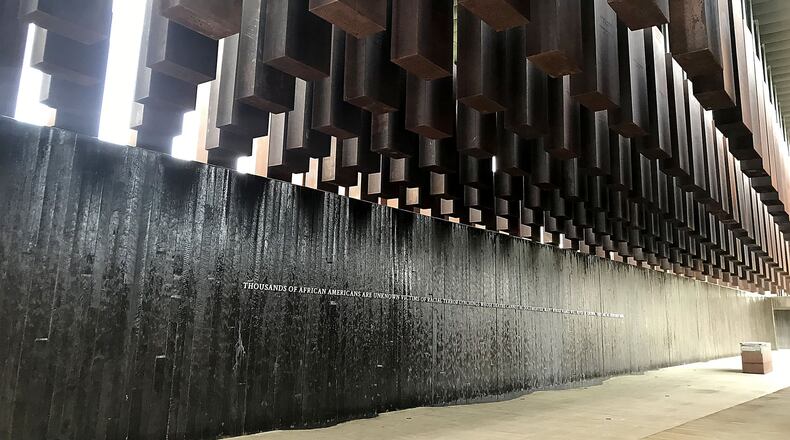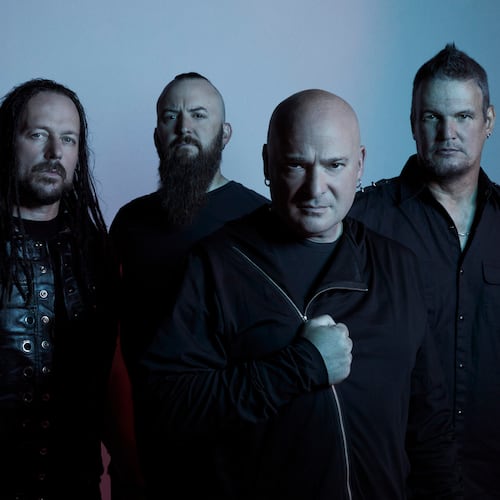So, the Equal Justice Initiative has issued a new report documenting nearly 2,000 more confirmed racial terror lynchings of Black people in America than previously detailed.
That news, detailed in “Reconstruction in America,” which examines 12 years of lawlessness and violence perpetrated by white leaders immediately following the Civil War, arrived just as we were burying George Floyd, processing the shooting death of Rayshard Brooks, and learning about two suspected lynchings of Black men 40 miles apart in California.
The family of one of those men has since said his death was a suicide, but talk about the pouring rain of bad news. 2020 has brought floods of it.
EJI believes there may be thousands more lynchings that we may never know about. And those we do, we can’t or won’t even talk about.
That’s a problem.
“We cannot understand our present moment without recognizing the lasting damage caused by allowing white supremacy and racial hierarchy to prevail during Reconstruction,” said EJI director Bryan Stevenson. “Our continued silence about the history of racial injustice has fueled many of the current problems surrounding police violence, mass incarceration, racial inequality, and the disparate impact of COVID-19.”
He said that we need a new era of truth and justice in America.
Many people believe any mention of slavery or racism serves only to widen the racial divide in the country, but Stevenson is right. We need to talk and more importantly listen.
RELATED | Pushing America to face its racist past
My first instinct when trying to make sense of this latest news was to get reaction from the experts. Sarah Silkey, a professor of history at Lycoming College. Susan Peppers-Bates, director of Africana Studies at Stetson University. And Shawn Leigh Alexander, the professor of African American Studies whose book is cited in the EJI study.
Then I thought better of it. Whether we’ll admit it or not, lynching not only played a critical role in maintaining white supremacy, law enforcement officials were frequently implicated in lynching incidents and courts maintained a wall of silence around them, routinely refusing to hold anyone accountable.
We all know that. Most of us, in fact, can draw a line from slavery to what happened to Trayvon Martin, Tamir Rice, George Floyd, Breonna Taylor and Rayshard Brooks. We can juxtapose what happened to them to the treatment of James Holmes, who murdered 12 and injured 70 others at an Aurora, Colorado, cinema, or Dylann Roof, who was treated to a meal from Burger King after murdering nine people at a Charleston, South Carolina, church.
Such comparisons matter, but I won’t do that now.
I’m just too old and too tired to recount what too many people would rather forget, people who prefer inventing Black America’s pathology to admitting their own blindness.
Even now, I don’t hold that against them; however, all too often that denial obliterates the truth that would set us all free.
So what is the truth?
Is it the 300 murders and other acts of racial violence EJI documented in Georgia? Is it just prevailing negative assumptions about Black people? Or is it the truth that we are all equal in the eyes of God, if not in the eyes of the law?
It all depends on who’s looking. For sure, the scales of justice have never been equal for Black people and white people if for no other reason than the scales too often reflect our own prejudices.
That’s why today, I just want to tell you a story.
RELATED | ‘Just Mercy’ a sobering reminder to love, seek justice for all
As you read it, keep in mind that there are thousands of other stories just like this one. If you do nothing else, try just this once to ignore the head noise and listen to your heart.
This is a story about a former Georgia legislator named Abram Colby.
It is Oct. 29, 1869. Colby is fast asleep when an angry mob breaks through the door of his home and drags him from his bed as his mother, wife and daughter look on helpless and horrified.
His little girl cries out. A few of them draw their guns on her, threaten to kill her if she doesn’t shut up.
Can you hear his little girl, begging with tears in her eyes? Can you see them with their guns still drawn, dragging Colby out the door?
These were pillars of the community. One is a lawyer, one a doctor, and some are farmers. Sixty-five in all.
They stop deep into the woods. They make him take off his shirt, and for three hours, they whip him. His drawers fall down about his feet. They take hold of them so he falls.
And for what?
Two days earlier, Colby, a Republican, had the audacity to refuse a $7,500 bribe, payment to change parties, or give up his office.
“Do you think you will ever vote another damned Radical ticket?” they demanded as they beat him.
“If there was an election tomorrow, I would vote the Radical ticket,” Colby told them.
RELATED | Keeping memory of Moore’s Ford lynching alive
They set in and gave him a thousand more licks with sticks and straps with buckles on the ends of them. Colby’s skin broke open, his blood, his very life draining on the ground.
As he lay there lifeless, the doctor in the crowd checked his pulse.
Credit: The Atlanta Journal-Constitution
Credit: The Atlanta Journal-Constitution
Finding none, they continued to beat him, counting the licks as they went. 998. 999. 1,000. They turned and left him there on the ground.
Abram Colby survived the beating, but his little girl was never the same after that. She died a year later.
Can you see her? Can you see her father, whose only crime was exercising his right to vote?
To this day, no one has ever paid for beating him. Does that make your blood boil? Why?
If you thought Abram Colby was white, you’d be wrong. Abram Colby was the son of a slave and her white master.
He never filed charges, but even if he had, he knew nothing would’ve been done. The Ku Klux Klan never condemned the Ku Klux Klan.
Now juxtapose what happened to Abram Colby in 1869 to what’s happening today.
Whites in power still don’t prosecute and white juries still don’t convict the police accused of killing African Americans. Until they do, America’s racist ghosts will still haunt us, and liberty and justice for all will remain a sham.
Find Gracie on Facebook (www.facebook.com/graciestaplesajc/) and Twitter (@GStaples_AJC) or email her at gstaples@ajc.com.
EVENT PREVIEW
Prayer Vigil marking 115th anniversary of mass lynching
Noon June 29. Oconee County Courthouse, 23 N. Main St., Watkinsville. Vigil will end at the nearby gravesite of Sandy Price, one of the nine victims killed June 29, 1905.
About the Author
Keep Reading
The Latest
Featured







